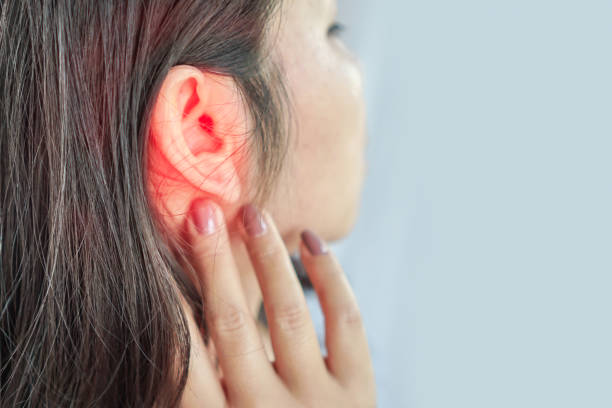Temporomandibular Joint Disorders, or TMJ, can cause a range of discomforts, with ear pain being one of the most confusing TMJ symptoms. The TMJ is the joint that connects your jawbone to your skull, helping you talk, chew, and make facial expressions. When something goes wrong with this joint, it can lead to various problems.
This includes ear pain, which can puzzle both patients and doctors. It’s important to understand what causes TMJ ear pain and what symptoms to look for. In this article, we will discuss six main causes of TMJ-related ear pain and their signs to help you recognize them.
Muscle Tension
One of the main reasons for TMJ ear pain is muscle tension in the jaw and neck. Stress and anxiety can cause people to grind their teeth or clench their jaws, which makes the muscles tight. This tightness can spread to the ears, leading to discomfort or pain. Many people notice their jaw feels sore, especially in the morning.
Jaw Misalignment
When the jaw is not aligned properly, known as malocclusion, it can put too much pressure on the TMJ and the surrounding areas. This misalignment can cause inflammation and strain in the joint, leading to pain that might be felt near the ear.
People with this problem may also have trouble chewing or jaw pain. Make sure to consult a TMJ treatment expert for more specific and personalized advice.
Arthritis
Arthritis, especially osteoarthritis or rheumatoid arthritis, can impact the TMJ (temporomandibular joint), causing pain and problems. When the protective cartilage breaks down, it creates more friction in the joint, which can lead to swelling and discomfort that might be felt in the ears.
Common signs include swelling, stiffness, and less movement in the jaw.
Ligament Strain
The ligaments around the TMJ can get strained from injuries or using them too much, causing pain that spreads to the ear. Doing things that need a lot of jaw movement, like talking too much, singing, or chewing tough foods, can make this strain worse.
You might feel sharp or aching pain in the area around your ear joint, which can make it hard to open your mouth wide.
Ear Infections
Ear infections aren’t directly caused by TMJ disorders, but they can happen at the same time and make things feel worse. The pain from an ear infection can feel similar to TMJ pain, which can make it hard to tell what’s causing the discomfort.
Common signs of ear infections include a feeling of fullness in the ear, discharge, or sharp pain, which can sometimes get worse when you move your jaw.
Headaches
Many people with TMJ disorders often have headaches, especially tension headaches or migraines. These headaches can be felt in the temples or near the ears. They may happen because of the muscle tension and stress that usually make TMJ symptoms worse.
Understanding the Causes and Symptoms of TMJ Ear Pain
In conclusion, recognizing the causes of TMJ ear pain is important for finding the right treatment. If you have ongoing ear pain with other symptoms, it’s crucial to see a healthcare professional. They can help create a treatment plan that fits your needs. Taking action early can lead to better results and help you feel comfortable again.
When pain is managed, you can focus on enjoying your daily activities without worry. Remember, seeking help is the first step toward relief and getting back to a pain-free life. Don’t hesitate to reach out for support when you need it!
Did you find this article helpful? Check out the rest of our blogs!

